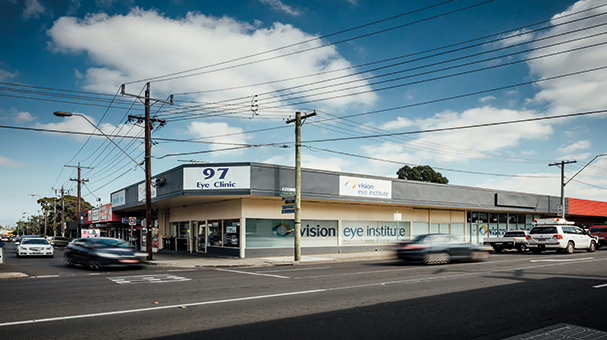Book now
Fill out the form below to request a consultation with one of our cataract surgeons.
Our cataract clinics
-
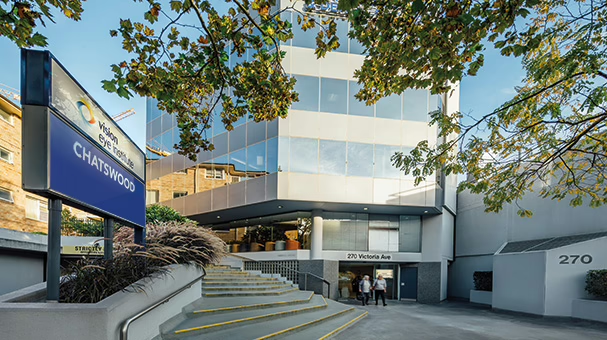
Chatswood
- 02 9424 9999
- Email us
-
Level 3, 270 Victoria Ave
Chatswood 2067 nsw -
M–F 8 am–5.30 pm
Sat Closed
Sun Closed
-

Drummoyne
- 02 9819 6100
- Email us
-
1 Bayswater St
Drummoyne 2047 nsw -
M–F 8.30 am–5 pm
Sat Closed
Sun Closed
-
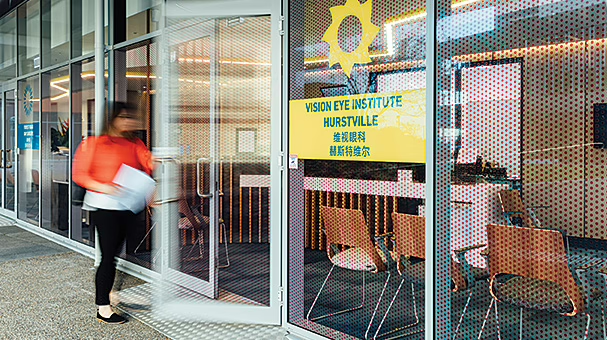
Hurstville
- 02 9330 6900
- Email us
-
99a Forest Rd
Hurstville 2220 nsw -
M–F 8 am–5 pm
Sat Closed
Sun Closed
-
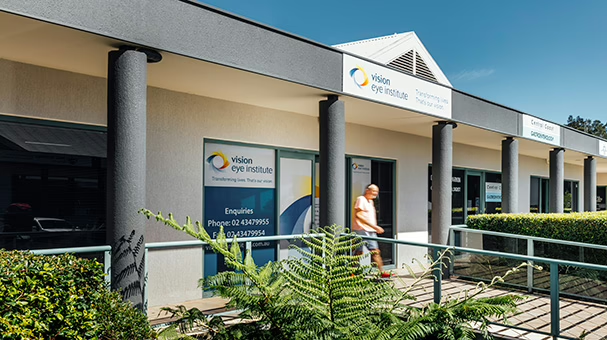
Tuggerah Lakes
- 02 4347 9955
- Email us
-
Suite C3, Kanwal Medical Complex, 654 Pacific Hwy
Kanwal 2259 nsw -
M–W 8 am–4:30 pm
Thu Closed
Fri 8 am–4:30 pm
Sat Closed
Sun Closed
-
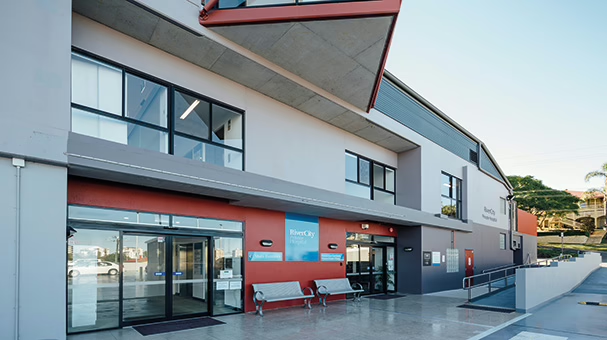
Brisbane
- 07 3736 3015
- Email us
-
Level 2, 401 Milton Rd
Auchenflower 4066 qld -
M–F 7 am–4 pm
Sat Closed
Sun Closed
-
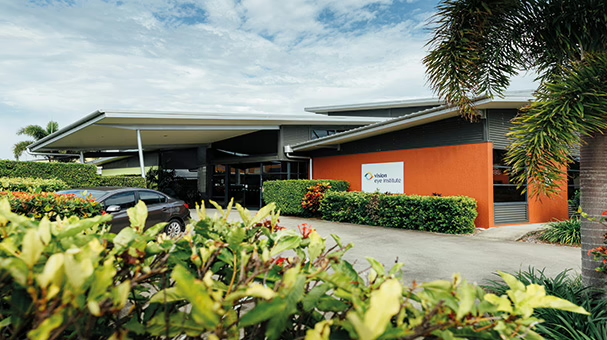
Mackay
- 07 4942 6444
- Email us
-
89–91 Willetts Rd
North Mackay 4740 qld -
M–F 8.30 am–5 pm
Sat Closed
Sun Closed
-
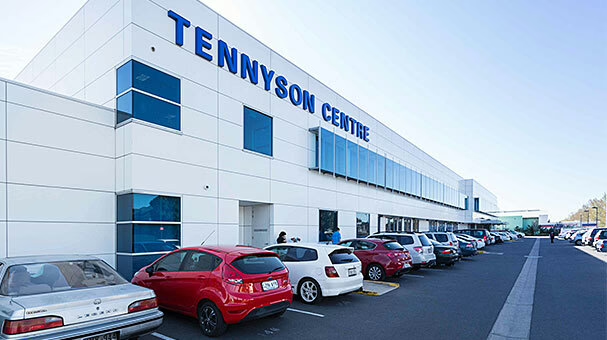
Kurralta Park
- 08 8292 2322
- Email us
-
Suite 21, 520 South Road
Kurralta Park 5037 sa -
M–F 8:30 am – 4:30 pm
Sat Closed
Sun Closed
-

North Adelaide
- 08 8239 0118
- Email us
-
226 Melbourne Street
North Adelaide 5006 sa -
M–F 8:30 am – 5 pm
Sat Closed
Sun Closed
-
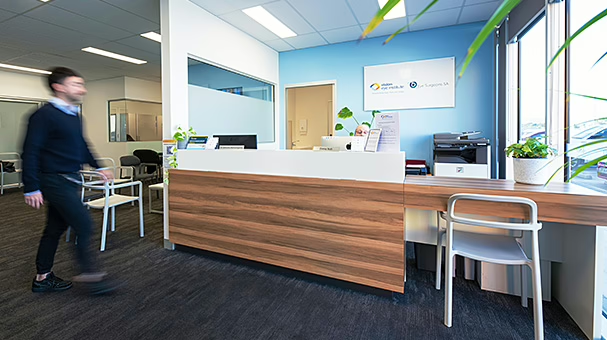
Windsor Gardens
- 08 8239 0118
- Email us
-
Suite 5, Ground Floor, 480 North East Rd
Windsor Gardens 5087 sa -
M–F 8:30 am – 5 pm
-
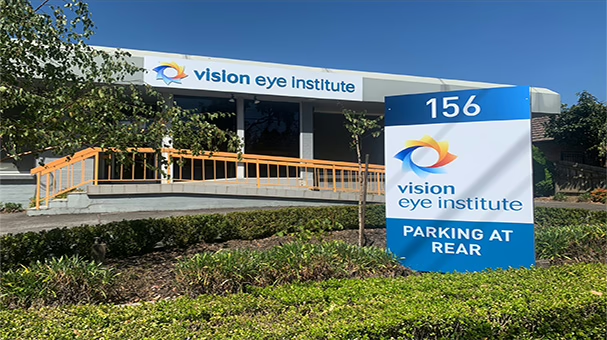
Blackburn South
- 03 9877 6288
- Email us
-
156 Canterbury Rd
Blackburn South 3130 vic -
M–F 8.30 am–5 pm
Sat Closed
Sun Closed
-
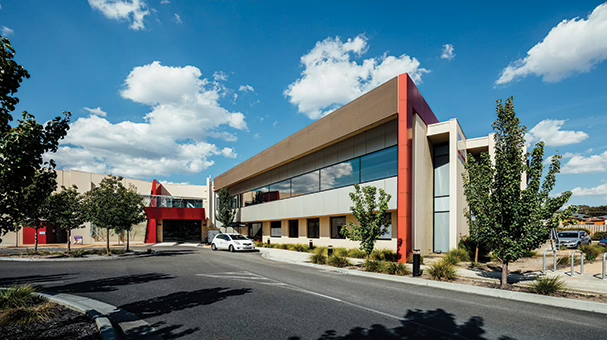
Boronia
- 03 9890 4333
- Email us
-
Ground floor, Suite 5,
157 Scoresby Rd
Boronia 3155 vic -
M–F 8.30 am–5 pm
Sat Closed
Sun Closed
-
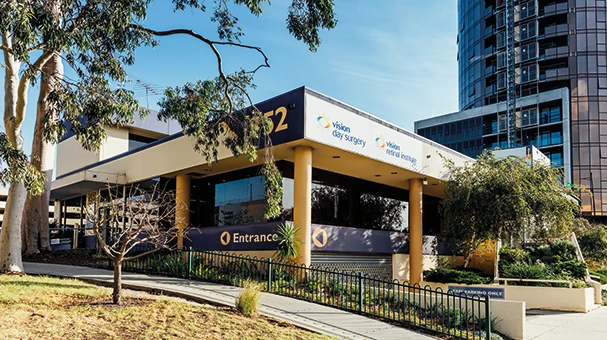
Box Hill Retinal Clinic
- 1800 MACULA or 03 9890 4333
- Email us
-
Level 1, 852 Whitehorse Rd
Box Hill 3128 vic -
M–F 8.30 am–5 pm
Sat Closed
Sun Closed
-
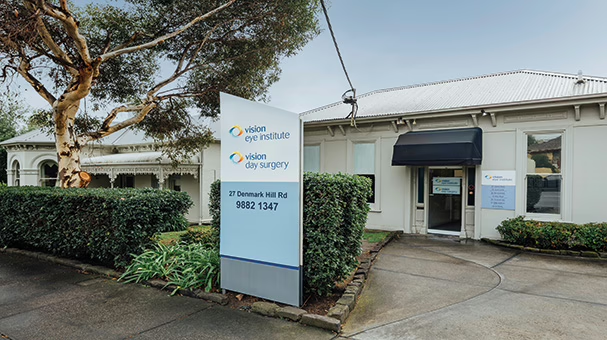
Camberwell
- 03 9882 1347
- Email us
-
27 Denmark Hill Rd
Hawthorn East 3123 vic -
M–F 8.30 am–5 pm
Sat Closed
Sun Closed
-
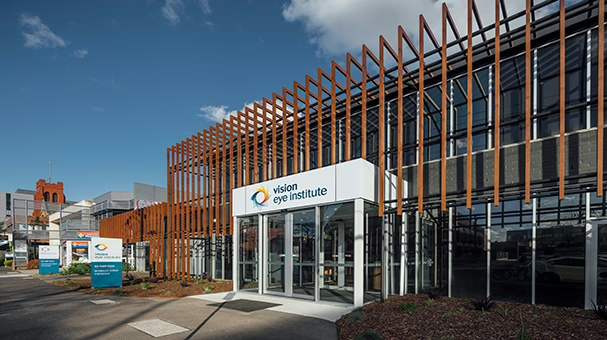
Footscray
- 03 9689 9233
- Email us
-
89 Paisley St
Footscray 3011 vic -
M–F 7.30 am–5 pm
Sat Closed
Sun Closed
-

Melbourne
- 03 9521 2175
- Email us
-
Ground floor, 600 St Kilda Rd
Melbourne 3004 vic -
M–F 8 am–5 pm
Sat Closed
Sun Closed
Frequently asked questions (FAQs)
When will I need cataract surgery?
In the early stages, some cataracts can be left untreated. When your sight deteriorates to a point where it interferes with your ability to carry out daily tasks or enjoy your hobbies (e.g. working comfortably or seeing in low-light situations such as at night), it could be time to consider surgery.
What is the cataract surgery success rate?
Traditional or manual cataract surgery is considered one of the safest surgical procedures in the world today, with a very high success rate.1 Laser cataract surgery may reduce the risk of complications even further. Serious complications are rare with cataract surgery but may include endophthalmitis (infection of the eye), bleeding, retinal detachment, macular swelling and posterior capsular rupture.
- Stein JD, Grossman DS, Mundy, KM et al. Severe adverse events following cataract surgery among Medicare beneficiaries. Ophthalmology 2011 Sep; 118(9): 1716–1723. doi: https://dx.doi.org/10.1016%2Fj.ophtha.2011.02.024
Does medicare cover the cost of cataract surgery or will there be a gap payment?
Some, but not all, of the costs of cataract surgery are covered by Medicare and also by private health insurance (depending on the type of cover you have). The gap payment will depend on several factors, including your level of private health cover and the replacement lens option you choose. We’ll go through all costs clearly at the time of your appointment.
Can I claim from my private health insurer?
This will depend on your level of cover. We recommend you check directly with your insurer, including any waiting periods and applicable co-payment or excess.
What if I don’t have private health insurance?
Private health insurance is not required to have surgery with us – you can self-fund it using your own funds.
What are the potential benefits of cataract surgery?*
Some of the potential benefits of cataract surgery are:
- Reduced risk of falls, fractures and surgical complications: Falls in the elderly can cause significant disability. Patients with cataracts are 2 or 3 times more likely to fall.
- Increased safety and confidence, especially while driving: Driving plays an important role in maintaining independence, mental wellbeing and engagement in the community.
- Reduced dependence on glasses: Cataracts may cause an increase in the strength of an individual’s glasses or contact lens prescription. Cataract surgery may reduce the need for glasses.
- Less anxiety and depression: By limiting independence and affecting overall quality of life, cataracts increase the risk of anxiety and depression.
- Higher levels of activity and physical fitness: Cataract surgery increases confidence and preserves mobility, making it easier for older adults to stay active.
- Reduced need for nursing home or personal care: By helping to maintain individuals’ independence, cataract surgery reduces the need for outside care.
- Continued ability to work: Cataract surgery enables older adults to continue their occupations, fostering their independence and engagement in life.
*Dependent on your individual situation.
Will I still need glasses after cataract surgery or lens exchange?
Today’s replacement lenses can also be used to correct pre-existing vision problems due to short-sightedness, long-sightedness, presbyopia and/or astigmatism. There are different lens options available, and some may allow you to achieve clear vision without glasses. For example, trifocal lenses provide focus at near, intermediate and far distances. These are typically the best option for achieving clear vision without glasses, although there are no guarantees. The most suitable candidates are over 55 years, rely heavily on glasses/contact lenses and are long-sighted. If you are quick to notice visual imperfections, then glasses may remain your best choice.
Speak with your ophthalmologist to find out the best lens option for you. This will depend on your lifestyle, expectations and eye health, and your surgeon will help you understand what you can realistically expect to achieve.
How long does cataract surgery take?
A typical procedure takes less than 30 minutes. Allowing for admission, preparation and recovery time, you’ll be in the day surgery for around 2 to 3 hours.
Will I be awake during my cataract surgery?
Probably, but not necessarily – some people even fall asleep during the surgery. You are not required to be awake for the operation.
Does cataract surgery hurt?
We will administer a local anaesthetic (numbing drops) to your eye and you may also be given a sedative to help you relax. You should feel no pain.
What if I blink during my cataract surgery?
Your surgeon will ensure that your eyelid is gently held open throughout the procedure so that you cannot blink.
How long does it take to recover from cataract surgery?
Your sight will usually recover within days but typically fluctuates for about a month before stabilising. If you notice any significant reduction in your vision, tell your surgeon immediately. The protective shield is usually worn for the first day and your surgeon may also recommend the shield be used for the first few nights after the operation – this is usually the case if you can’t stop rubbing your eyes. Cataract surgery does not usually involve stitches.
Normal daily activities such as light housework can be resumed within a couple of days. With routine and successful surgery, patients are usually fit for all physical activities and contact sports one month after cataract surgery – this includes sparring in martial arts.
Will my eye hurt after cataract surgery?
You may feel some mild discomfort beginning a few hours after surgery. For most people, this resolves with a week, but may last longer in some cases.1 You will be given treatments to manage any discomfort or pain.
1. Porela-Tiihonen S, Kaarniranta K, Kokki M et al. A prospective study on postoperative pain after cataract surgery. Clin Ophthalmol 2013;7:1429–1435. https://dx.doi.org/10.2147%2FOPTH.S47576
How long before I can drive a car after cataract surgery?
Driving is not recommended for the first few days after surgery to allow your eye to settle.
Can I have cataract surgery in both eyes at the same time?
It is generally preferable to give the first eye a chance to settle before planning surgery and lens requirements for the second eye. Even though cataract surgery is quite safe, operating on both eyes at the same time may increase the risk of serious complications and visual impairment (e.g. if both eyes were to get infected at the same time).1. However, there may be some situations where your surgeon recommends having both eyes done at once.
- The Royal Australian and New Zealand College of Ophthalmologists (RANZCO). Preferred practice patterns: cataract and intraocular lens surgery. Surry Hills, NSW: RANZCO, 2016. Available at ranzco.edu/wp-content/uploads/2018/11/RANZCO-Cataract-PPP-2016.pdf [Accessed 7 July 2021]
When can I have cataract surgery for my second eye?
Your doctor will be able to help you determine when the second eye can be operated on. Although it varies, most surgery is around two weeks apart. In the case of multifocal implants, early second-eye surgery hastens the recovery. Patients who are very short- or long-sighted also benefit from both eyes being operated on in quick succession, as it is common that their eyes are now significantly unbalanced. During the period between surgeries, a contact lens may be used to balance the eye that has not yet been operated on.
What is laser cataract surgery?
Laser-assisted cataract surgery is an alternative technique that uses a femtosecond laser to help with parts of the procedure. It is also known as FLACS, which stands for femtosecond laser-assisted cataract surgery.
Both traditional and laser-assisted cataract surgeries are safe and effective, with similar visual results for most people.
FLACS may be a slightly safer option if you have a higher risk of developing complications – for example, if the fibres holding your lens in place are weak, or you are taking certain medications.
Learn more about the difference between cataract surgery and laser cataract surgery.
Is everyone suitable for laser cataract surgery?
No, there are certain patients who are not suitable for laser cataract surgery. Your surgeon will be able to advise if you are suitable after completing a thorough examination of your eyes.
Does laser cataract surgery cost more?
As with any new technology, laser cataract surgery costs more than traditional cataract surgery. This is due to the operating costs of the laser.
What are the risks from cataract surgery?
Cataract surgery is one of the most successful procedures in medicine, so the risk factor is relatively minimal. However, as with any surgery, complications can occur and may be related to the procedure itself or to the anaesthesia. Most of the complications from cataract surgery are minor and can be corrected. The success rate is high (99%),1 with around a 1 in 1000 risk of permanently impaired eyesight.2
Your doctor will discuss the risks and benefits of cataract surgery so that you can make a fully informed decision.
- Clark A, Morlet N, Ng JQ et al. Whole population trends in complications of cataract surgery over 22 years in Western Australia. Ophthalmology 2011 Jun;118(6):1055-61. https://doi.org/10.1016/j.ophtha.2010.11.001
What are the potential complications of cataract and lens surgery?
Posterior capsule opacification (PCO) is the most common potential complication of cataract and lens surgery. PCO can occur when the back of the capsule (housing the lens) thickens. This can cause your vision to appear cloudy but can be treated quickly using a YAG laser outpatient procedure and eye drops.
Also, refer to the section ‘Potential complications’ at the bottom of the ‘Cataract & lens surgery’ page.
What are the different types of lenses available for cataract surgery?
Artificial intraocular lenses (IOLs) are composed of pliable and flexible plastic materials and serve as replacements for the natural lens in your eyes. They not only provide a substitute for your eye’s original lens but can also address existing refractive errors like myopia, hyperopia, and astigmatism. Available lenses include:
- Monofocal lenses
- Multifocal lenses
- Bifocal lenses
- Trifocal lenses
- Extended-depth-of-focus (EDOF) lenses
- Toric lenses
